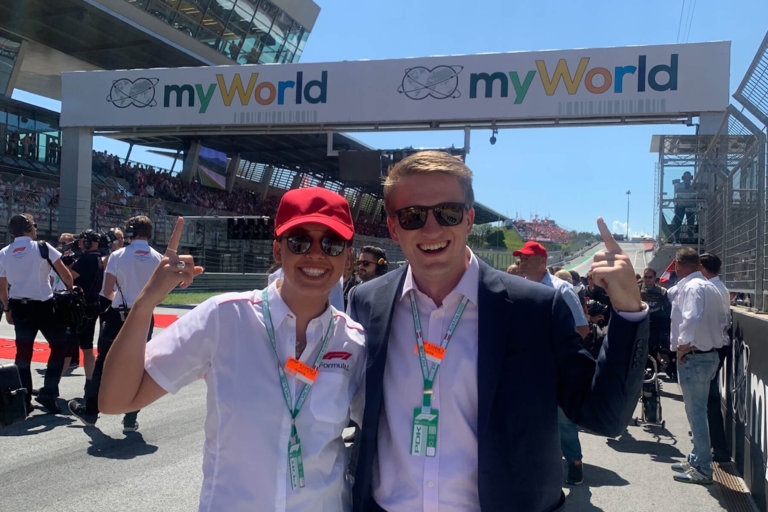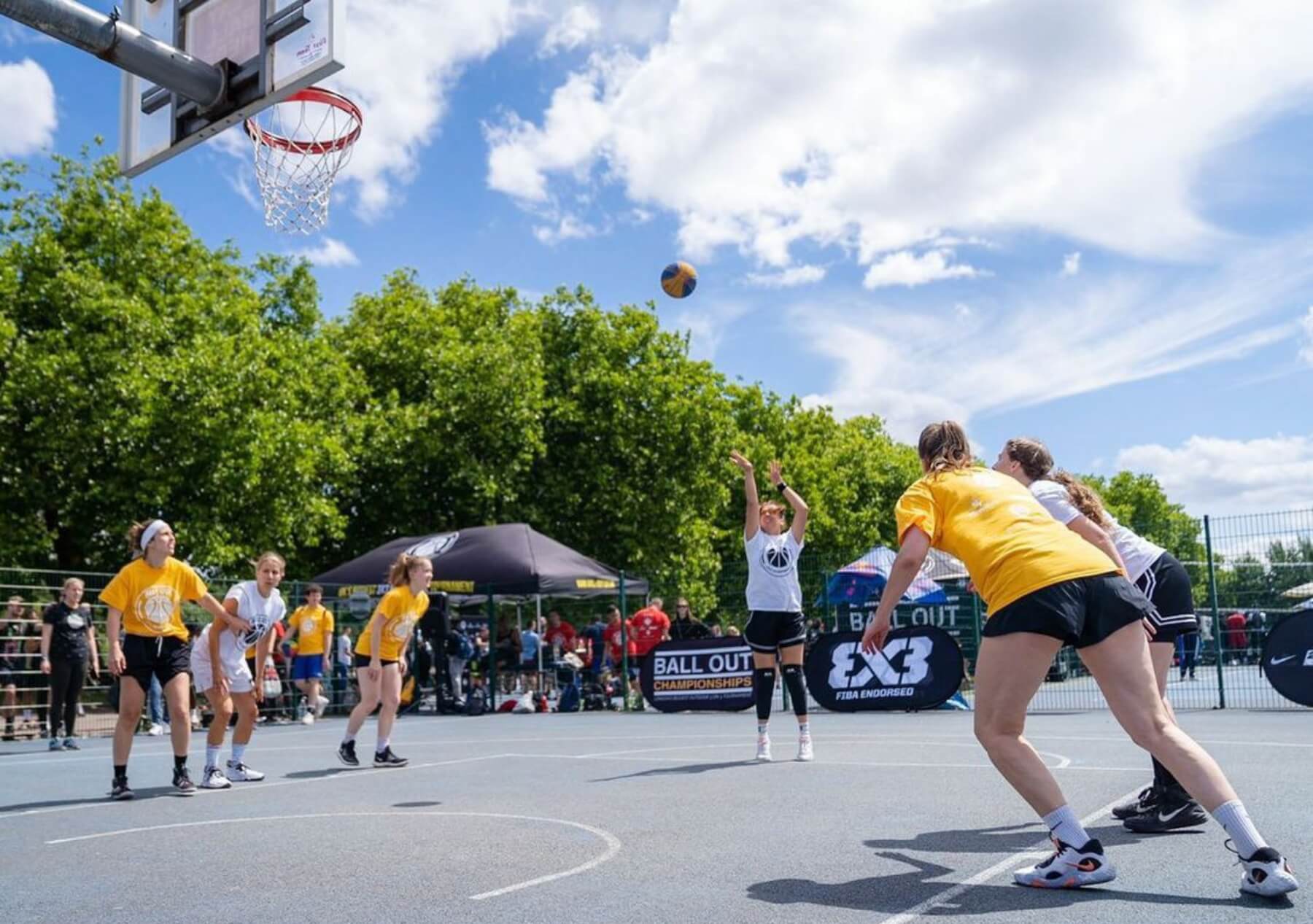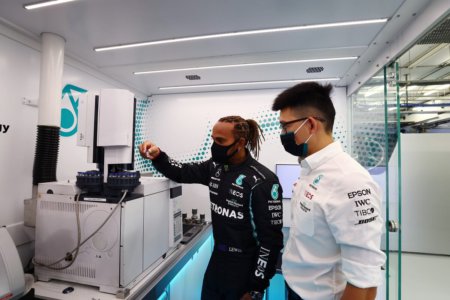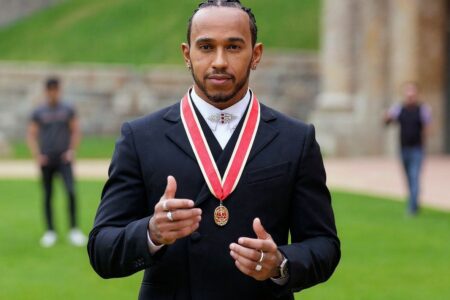
As technology develops, data has become vital in sports — and this Italian’s passion for data set her on a path to working in the sports industry.
Giulia Zecchini caught her breakthrough as an account manager at Nielsen Sports, a global leader in sports intelligence. Three years later, she joined Formula One as a commercial business intelligence manager. Today, she is the commercial strategy lead for FACEIT, a leading independent competitive gaming platform, bringing brand sponsorships and partnerships to life.
Having studied in Italy, Spain and the UK, the Italian never imagined she would carve a career in sports. “Growing up, I wanted to be a sports journalist,” she shares. “I never thought that sports could be my career, just because I don’t think there’s enough education around the fact that there’s so much more to sports than what we see in the media.”
We caught up with Zecchini to learn about what ignited her passion for data and how her education paved the way for her to start working in the sports industry:

Zecchini enjoying some downtime by playing CS:GO in the FACEIT office. Source: Giulia Zecchini
What do you do as a commercial strategy lead for FACEIT?
Before FACEIT, I was doing commercial business intelligence in Formula One. It’s not too different from my current role as I am always within the commercial teams, primarily focusing on sponsorship. So, I look at the strategy behind our commercial initiatives through data by analysing first, second and third-party data.
On top of that, I work with third-party data providers and guide the business in determining what industry and brand they should work it. I also supervise how our platform can work with those brands to bring the partnership to life.
What sparked your interest in data and sports?
I came from a family that loved to play sports. My dad played basketball professionally, and my grandfather was a professional swimmer and a sports journalist. So, I have always played sports; I played basketball professionally in Italy and at a semi-pro level in the UK.
As an undergraduate student, I studied sociology with many stat modules. That ignited my passion for data and opened my eyes to how we can use data to uncover trends, stories, and information in analysing human behaviours. Soon, I realised this is a universal concept that applies to various industries.
While I never linked data to sports in university, my background helped shape a lot of my work as I was able to develop a hypothesis on sports sponsorship and fan behaviours. Through this, I could analyse whether an organisation effectively interacts with its target audience.

Zecchini playing basketball at Ball Out FIBA 3×3, the largest 3×3 basketball in the UK. Source: Giulia Zecchini
Tell us a bit about your background as an international student.
I am originally from Italy, and my family is Italian.
I went to a British school in Italy and decided to study at the University of Warwick, completing my degree in sociology.
I spent a year and a half in Madrid for my Erasmus in Spain, which was a great opportunity to live abroad and improve my Spanish. After graduation, I pursued a master’s degree in the UK, at Imperial College London (ICL) to develop my business acumen.
Why did you decide to study for a Master of Science (MSc) Innovation, Entrepreneurship & Management at ICL?
My end goal was to move and work in London, so I narrowed down my search. The business school at Imperial College London is prestigious and has important links to fields like technology, science, and medicine. I found it interesting to surround myself with people in areas I was unaware of.
The business school also focused on entrepreneurship, innovation, and management, which I was interested in as I wanted to learn more about startups, scale-ups, being an entrepreneur, working for small businesses, and helping them scale.
From my time with ICL, I learned all the necessary skill-sets to develop a strong commercial awareness and understand how businesses work. It opened my eyes to what I should focus on when developing commercial strategies.
Tell us how you landed your role at Nielsen Sports, a company specialising in sponsorship evaluation and data analytics.
After finishing my master’s degree, I landed my first job at Nielsen. As part of their graduate programme, I worked on brands such as Mars and Coca-Cola. Due to extensive training on the programme, I managed to interview for an account manager role in the football division.
Data analytics and visualisation are skills that are transferable from different industries. Hence, I transitioned to working on “Rights Holder” with some of the biggest Premier League football clubs and supported their sponsorship evaluations and activations.

Zecchini with Nielsen Sports at the Carabao Cup finals where Manchester City contested with Arsenal for the win. Source: Giulia Zecchini
What were some of your most memorable experiences working for Nielsen Sports?
One of the projects I worked on towards the end of my time at Nielsen was helping the Manchester City Women’s Team secure sponsors. In 2016-17, the commercialisation of sports wasn’t quite as right. So, we focused on helping in securing local sponsors by using a lot of data at Nielsen to analyse consumer behaviours.
We looked at where people were going before and after the game. We also monitored where people were moving in and around the area to see what business Nielsen could rely on to be interested in the fanbase of the football club.
Working with various Premier League clubs allowed me to see how different clubs approached sponsorship. I was also lucky to visit all these clubs across the UK and attend incredible football events, such as the Carabao Cup finals and the Champions League games.
Tell us more about your time working in Formula One.
So, I was actually headhunted for my job in Formula One and my current role at FACEIT. I joined Formula One in 2018 after Liberty Media took over the sport. Much of my work revolved around initiatives that shifted the customer landscape, although they were more marketing initiatives than commercial initiatives.
Due to my job, I was lucky to travel to several races for research and work purposes. As a commercial business intelligence manager, I worked extensively with different stakeholders across the business, third-party research providers and our fans directly too.
 Since AWS partnered with Formula One in 2018, fans are able to be more immersed in the action with detailed insights such as Start Analysis, Car Analysis, Car Performance and many more.
Since AWS partnered with Formula One in 2018, fans are able to be more immersed in the action with detailed insights such as Start Analysis, Car Analysis, Car Performance and many more.
What was one memorable project you worked on that helped shaped the sport?
The deal with Amazon Web Services (AWS) tremendously improved the experience of watching Formula One. By working with the engineering teams, the AWS deal provided additional insights to fans on how Formula One works. When I joined, I noticed we needed to bring in a lot of new fans to the sport — and marketing did a great job of attracting newer fans from different markets.
However, some of these fans weren’t your typical petrol heads or culture heads, so they may struggle to understand the engineering and competition side of Formula One fully. Through AWS Insights, fans are more immersed with the action on track through data such as tyre performance, the chance of overtaking, and many more.
Do you have any advice for students who are considering working in the sports industry?
I would recommend studying something that will give you transferable skills. Many tend to go down a specific route, such as football management, because they want to work in football. However, you may find it beneficial to study something broader like statistics or business, as it will give you all the skills you can apply to various industries or businesses within an industry.










